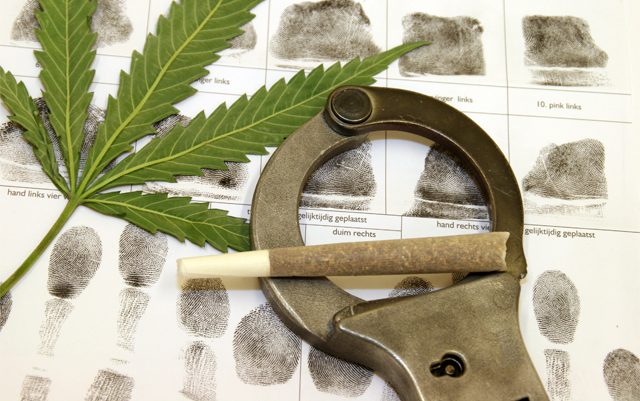Decriminalization ordinances have become popular all across the nation for cities who want to see reform of marijuana laws but cannot make the jump to legalization all on their own. It works out as a relatively fair middle ground, where anyone found with small amounts of cannabis end up with a civil citation or infraction which usually comes with a fine or community service, sort of like a traffic ticket. In 2014, Santa Fe, New Mexico adopted an ordinance that made an ounce or less of marijuana a civil infraction with a fine of $25 – which is a relatively small fine compared to some cities and counties.
However, state law still says that possession of an ounce or less is punishable by up to 15 days in jail as a misdemeanor offense, with a $100 fine – with the second offense landing you up to a year in jail and a $1,000 fine. While police have the option to issue the citation rather than making an arrest, it appears that the majority of the time, Santa Fe police have been choosing to uphold state law and completely disregard the ordinance that has been in effect for about two years now – and the City Councilor has made it clear he wants to see this ordinance honored.
“As per your recommendation, I have directed that additional training on the ordinance be provided for all officers,” Gallagher wrote in an email to Maestas earlier this month. “This will take place over the next several months as staffing levels permit.”
Joseph Maestas, the City Councilor, recently asked Chief of Police Patrick Gallagher to ensure that all officers receive updated training on how to handle marijuana possession when they come across it. For example, when it may be appropriate to make an arrest (if other drugs or minors are involved, or if there is an exchange of marijuana for cash, for example) and when they should just go ahead and issue a citation (any basic possession case where the amount of cannabis found is an ounce or less), as well as formal training in regards to medical marijuana laws within the state and a “sensitivity training” on how even a simple possession conviction or arrest can cause big problems for people in the future, especially young adults.
“I’ve asked that he add another element to the lesson plan for the training and that is informing them on the impact, particularly on young people, of an arrest or conviction in terms of getting public housing or public financial aid in college,” Maestas said. “I want them to be sensitive to the impacts of having an arrest and or a conviction record.”
Officers are now being reminded of how to properly handle marijuana possession within their city during role call and there will be a formal training class that will be mandatory for all police officers that will go over all these different aspects. The idea is to put an end to excessive arrests for simple marijuana possession, which can have a lasting negative impact on someone’s life. The ordinance was adopted with these goals in mind and until now, police have not done a good enough job enforcing the local law – prompting this retraining – which will hopefully allow this ordinance to have the positive effect it was intended to have.






